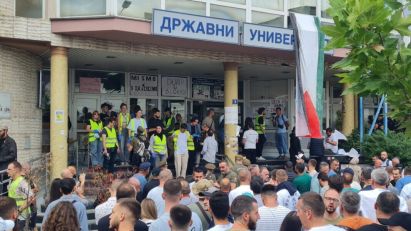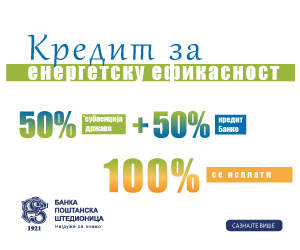
Izvor: Politika, 08.Nov.2007, 13:00 (ažurirano 02.Apr.2020.)
Evropu boli stomak
Poslednjih mesec dana, otprilike, Evropu boli stomak zbog Kosova.
Uzroci tog bola su višestruki. Od kosovskih ekonomskih nedaća koje traju (uprkos obilatom finansiranju iz Evrope), preko kanonade zahteva za nezavisnost od strane njegove albanske većine, do političkih muka za velike sile koje moraju da odluče šta dalje sa Kosovom.
Unutar Kosova dinamika je godinama ista.
Napolju, kao da su SAD i ključni igrači Evropske unije (i NATO-a) tek sad uvideli haos koji su jednim delom sami >> Pročitaj celu vest na sajtu Politika << stvorili: "stvorili" utoliko što su prvo počeli da se mešaju u stvari bivše Jugoslavije početkom devedesetih, a onda da intervenišu (ma koliko da su im namere možda bile plemenite). Jedna od posledica delovanja ovih nesrećnih čarobnjakovih šegrta jesu postojeće kosovske neprilike.
Sada se Evropa, u svojstvu Evropske unije, suočava sa ogromnim problemom kako da administraciju UN na Kosovu, Unmik, zameni sopstvenom misijom sa sedištem u Briselu – nazovimo je Eumik.
Ovog puta stomak najviše boli Nemačku, koja obezbeđuje više vojnika za Kfor (20 odsto) i veću finansijsku pomoć od bilo koje druge članice. Pre 11 meseci studija koju je naručio Bundesver utvrdila je da je Unmik upravljao nečim što je ravno propasti u socijalnoj, ekonomskoj i političkoj sferi, pa čak i da je tome doprinosio.
Nemačka je kao niko drugi ostavila trag u istoriji Balkana tokom dva svetska rata i kao osvajačka i kao okupaciona sila – posebno na Kosovu. (To je možda prihvatljivo nekim Albancima čiji su preci privremeno osvojili teritorije "Velike Albanije" i koji su sa zahvalnošću popunili celu jednu es-es diviziju nazvanu po njihovom tradicionalnom heroju Skenderbegu.)
To je prošlost koje su Nemci vrlo svesni kao narod koji se suočio sa istorijskim gresima svoje nacije više nego bilo ko drugi. Oni bi hteli da je ostave iza sebe.
Pitanje je kako prebaciti upravljanje polunezavisnim Kosovom sa Ujedinjenih nacija na Evropsku uniju – kako je predviđeno traljavo urađenim Ahtisarijevim planom i kako predviđa i takozvana trojka, sastavljena od američkog, ruskog i evropskog pregovarača.
To bi moglo da prođe relativno glatko kad bi Savet bezbednosti mogao da se dogovori i odobri taj transfer. Ali neće. Zato diplomate sada grabe da nađu neku vrstu zamene, kao što je "odobrenje" generalnog sekretara UN, savitljivog Ban Ki Muna (koji je već podržao Ahtisarijev predlog). Nemačka je ukazala da bi donekle bila spremna da razmisli o tome, uprkos velikim rezervama. No, ima, izgleda, deset zemalja EU koje se protive bilo kakvom rešenju za Kosovo koje ne bi odobrio Savet bezbednosti.
Za Nemačku je ovo pitanje posebno goruće zbog toga što koaliciona vlada u Berlinu zna da mora da ima odobrenje Bundestaga za bilo kakvu promenu u svojoj misiji za Kosovo. Berlin je na oprezu i zbog toga što bi Srbija s pravom mogla da u Nemačkoj vidi okupatorsku silu na njenom kosovskom delu ukoliko dođe bez mandata UN. Štaviše, mogla bi da se stvori predstava da je Nemačka došla u Srbiju agresijom – treći put za sto godina. Učešće Nemačke u NATO bombardovanju Srbije 1999. bilo je teško prodati u Bundestagu. Koliko bi teže bilo sada za Kosovo sa sumnjivim mandatom?
Percepcija Nemačke kao okupatorske sile bila bi još snažnija kada SAD budu povukle preostalih 1.600 vojnika iz sastava Kfora, što je ministar odbrane Robert Gejts obećao za 2008. godinu.
Ne čudi onda to što Nemci očajnički razmišljaju kako da se izvuku iz kosovske kaljuge. Ova nedoumica je naterala Volfganga Išingera, pregovarača EU u okviru "trojke", da u oktobru predloži da se sukob Srbije i Kosova reši po uzoru na ugovor o zbližavanju dve Nemačke iz 1972.
Sve je to lepo, ali čak i ako se sasvim zanemare brojne različitosti između ovog balkanskog sukoba i onog između dve Nemačke tokom hladnog rata, ne može da se zanemari krajnji ishod da je jedna Nemačka progutala drugu posle pada Berlinskog zida.
Srbija nije uspela da proguta Kosovo od 14. veka. Naprotiv, ono je vremenom postajalo sve nesvarljivije.
Dejvid Bajnder
(Prevela J. Kavaja)
--------------------------------------------------------------------------
(Verzija na engleskom jeziku)
Europe′s Stomach
In the last month or so Kosovo has become a stomach ache for Europe. There are multiple causes for the ache. They range from Kosovo′s persisting economic misery (despite heavy funding by Europe) on to the drumfire of demands by its ethnic Albanian majority for independence and finally to the political distress of the great powers who are obligated to decide how to proceed on Kosovo.
Inside Kosovo the dynamic has remained the same for years. Outside it is as if the United States and the major players of the European Union (and NATO) have just awakened to the mess that they in part created : "Created" in so far as they began interfering and then intervening in the affairs of the former Yugoslavia at the beginning of the 1990s (however noble their initial intentions might have been). Among the results of the actions by these hapless sorcerer′s apprentices is the current Kosovo mess. Now Europe, in its European Union role, is confronted with the enormous problem of how to replace the United Nations authority in Kosovo, UNMIK, with its own Brussels-basedauthority - call it EUMIK.
The principal stomach ache sufferer at this time is Germany - which supplies the most troops (20 percent) of any of the member forces deployed by KFOR, and more fiscal support than any other country. Already 11 months ago a study commissioned by the Bundeswehr documented that UNMIK has presided over and even promoted what amounts to a disaster in the social, economic and political spheres.
Uniquely, Germany has a historical record in the Balkans - and specifically in Kosovo - as an invader AND an occupation power in the two world wars. (This might sit well with some Albanians whose forefathers temporarily gained territory in a "Greater Albania" and who gratefully manned an entire SS division named for their traditional hero Skanderbeg.).
It is a past that Germans, who have faced up to their nation′s historical transgressions more than most peoples, are acutely aware of. They would like to put it behind them At issue is how to transfer supervision of a semi-independent Kosovo from the United Nations to the European Union - as was foreseen by the bungling Ahtisaari plan of last spring, and is still foreseen by the so-called troika consisting of American, Russian and European Union negotiators.
It could go fairly smoothly if the Security Council could resolve to approve a transfer. But It won′t. This has led to scrambling by diplomats to find some kind of substitute, such as "approval" by the UN secretary general, the pliable Ban Ki-moon (who had already endorsed the Ahtisaari proposal).
Germany has indicated some willingness to consider this, despite grave reservations. But there appear to be 10 EU countries that object to any Kosovo solution that does not have Security Council approval.
For Germany the issue is especially acute because the Berlin coalition government knows that it needs the approval of the Bundestag for any change in its Kosovo mission. Berlin is also mindful that Serbia might well view Germany as an occupation power in the Kosovo portion of the country if it were present without a UN mandate. Moreover Germany could be perceived as having arrived in Serbia by way of aggression - for the third time in a century. German participation in the NATO action against Serbia in 1999 was hard enough to sell in the Bundestag. How much harder would it be with Kosovo today under a murky mandate?
The perception of Germany again becoming an occupier would be reinforced when the United States pulls its remaining 1,600 troops out of KFOR, as Defense Secretary Robert Gates has said will happen in 2008. Little wonder then, that the Germans are casting about desperately for ways out of the Kosovo morass. The dilemma prompted Wolfgang Ischinger, the troika negotiator for the European Union, to propose in October that the Serbia-Kosovo dispute might be resolved along the lines of the peaceful rapprochement begun between the two German states in 1972.
All very well, but even if one were to wipe away the many huge disparities between this Balkan dispute and the German dispute during the cold war, one cannot ignore the outcome of one Germany swallowing the other after the fall of the Wall.
Serbia has not been able to swallow Kosovo since the 14th century. Instead, since then Kosovo has grown evermore indigestible.
[objavljeno: ]








